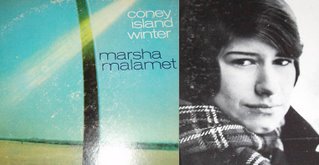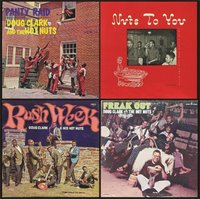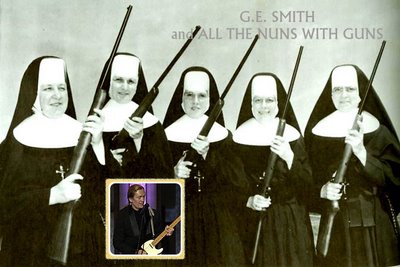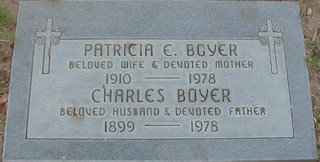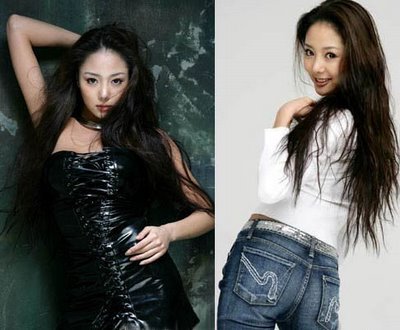
U-Nee hanged herself a week ago.
Fans of the albums she released in 2003 and 2005 were expecting something hot from their Korean pop idol in 2007. She had mirrored Christina Aguilera and other dance-pop divas who stoked libidos while studio musicians scratched up beats.
Like Aguilera, who was smart enough to drop the "skank" act before it killed her, U-Nee was having second thoughts about the way "sex goddess" simply becomes "ho" or "pop tart" or some other derogatory term.
After dutifully posing in leather and filling her tracks with the standard sexy tricks, U-Nee sent out a storm warning last year: "I'm going to come back with an improved self. I want to try shedding the sexy image I built for myself and bring a new image to my fans."
Her good intentions were destroyed by an incident that happened far away in Malaysia. That's where Altantuya Shaaribuu was murdered in October of 2006, her body blown to bits by explosives, identified only through DNA. Shaaribuu, a part-time model, was having an affair with Abdul Razak Baginda, a defense analyst. Did he kill her, did he assign a high-placed hitman, or was there a government conspiracy?
Adding insult to the fatal injury, sexy pictures of U-Nee were circulated as being secret poses of the late Altantuya. When the Malaysian woman's father declared, "That's not her...don't spoil her name," the backlash against U-Nee was like a tsunami.
Anti-U-Nee websites appeared and she was swamped with hate mail. U-Nee was already suffering from depression from her low image, the pressures of fame, and her workload in preparing her third album.
She left no note. Probably the day she died her computer was flooded with headers of hate and derision over her sexy pictures "defaming" the memory of a woman she never even knew. The trial of Altantuya's alleged murderer is scheduled to take place in 2008.
The singer who was born Heo Yoon May 3, 1981, died as U-nee, January 21, 2007.
Now you know the basics of her story.
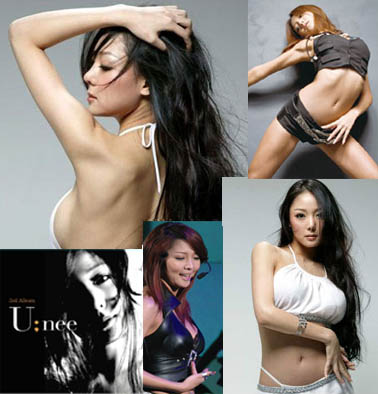
You'd like to hear her sing?
U-Nee had a unique name but was pretty similar to every sexy female from Christina Aguilera to Mylene Farmer to Madonna, mixing techno, rap and pop, adding bonus tracks re-mixing with thumps and sound effects for the disco/dance crowd.
Her first album, "Code" has a song called "Oh Punch" that owes a bit to Britney Spears' "Hit Me Baby One More Time," while the song "Play," samples American Black phrases and "Go" is spiced by male rappers shouting "When I say Hey, You say Ho." Or something like that. On her second album, "I Want You" is a chaotic combo of rap grunts from men and upbeat sass from U-Nee. "One" opens like everyone's American Idol ballad and overflows with power pop anguish. She often imitated the phrasings of young black and Latina performers, using deliberately flat-voiced male rappers for ghetto cred.
The Illfolks choice is "Don't Cry Again," which flirts with disco, has a traditional Asian minor key melody, uses a bit of synth and a dash of rap-scratch and halfway through switches from Korean to English.
Now that's covering a lot of bases! It might reflect the fractured nature of K-Pop, which keeps turning away from traditional Asian tonalities to mimic all the latest trends coming out of America. At least "Don't Cry Again" has some of the tantalizing dabbling into sharps and flats that you expect from Eastern melody, and U-Nee doesn't try to get too ghetto in her phrasings. If you need to hear U-Nee...
DON'T CRY AGAIN is one of U-Nee's most universally accessible songs

